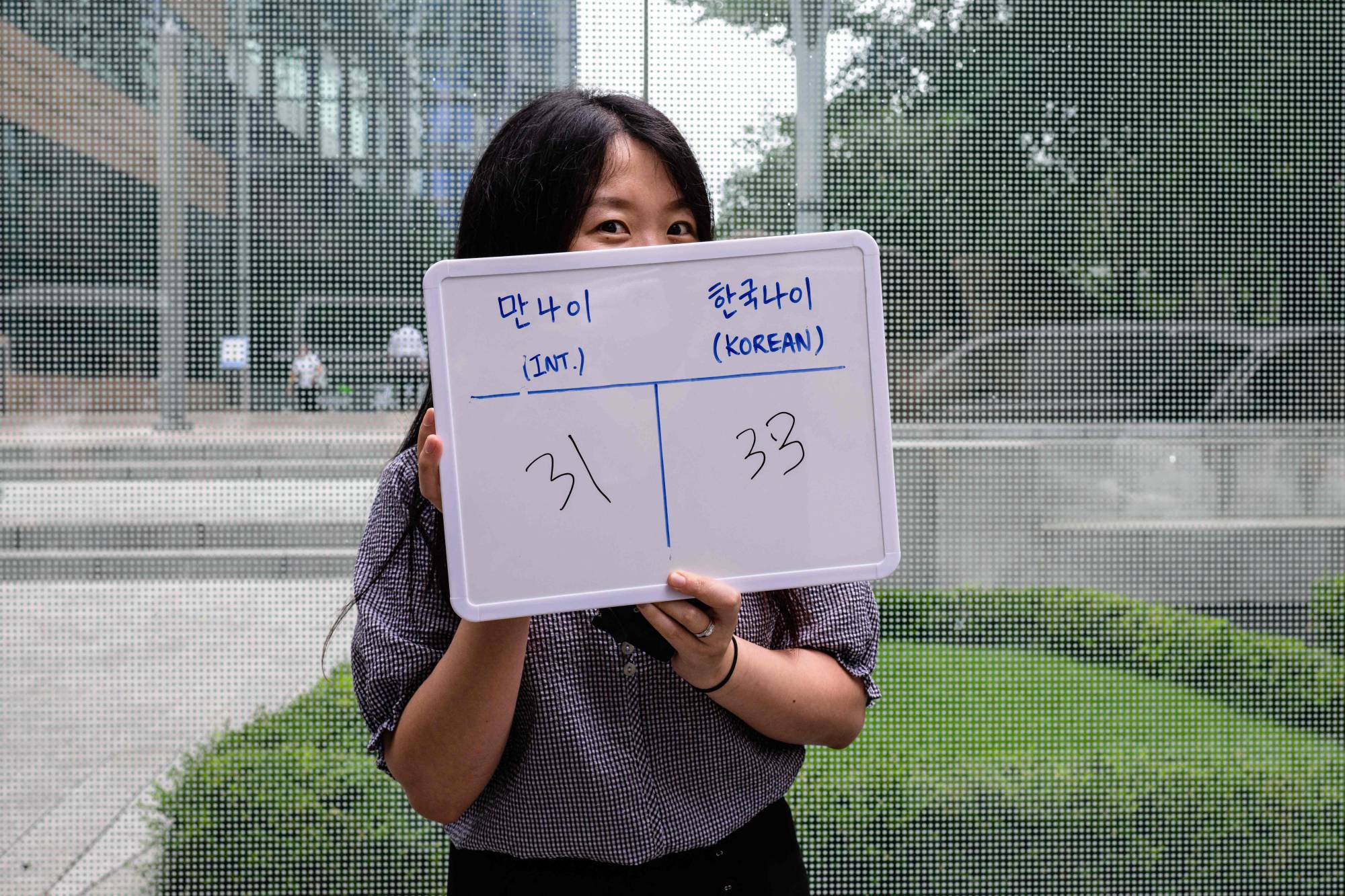The country has now made official a change to its odd, traditional way of counting a person’s age.
As South Korea embarks on a campaign to abandon its peculiar age-counting tradition, which often makes individuals a year or two older than their actual age, most Koreans have embraced and welcomed the change. But there are those, especially children, who remain staunch supporters of the old practice.
“I turned 6 and then became 5 again,” exclaimed Kim Da-in when asked about the recently enacted law aimed at adopting the international age-counting method in administrative and civil laws, encouraging people to align their ages accordingly.
South Korea’s traditional age-counting custom considers every person to be 1 year old at birth and adds another year when the calendar reaches January 1st, meaning a child born on December 31st instantly becomes 2 years old the following day.
This non-standard way of counting a person’s age may just seem like a cultural curiosity, but in a number of instances, can actually have real-world ramifications in an increasingly globalised society.

While the new law seeks to retire this age-counting method and establish international standards based on birthdays, the practical changes remain somewhat unclear, disregarding the minor frustrations faced by children like Da-in eagerly awaiting their birthdays… and the idea of being considered just a little bit older than they actually are!
President Yoon Suk Yeol has identified the standardisation of international ages as a crucial objective of his government, citing the need to alleviate “social and administrative confusion” and disputes. However, officials from South Korea’s Ministry of Government Legislation acknowledge that the new law will have limited impact on how public services are conducted since most already operate based on international ages.
FOR MOST, THERE WILL NOT BE MUCH NOTABLE CHANGE
Indeed, despite the traditional age-counting practice, international ages are already the norm in the majority of South Korean laws, official documents, and legal proceedings, determining when individuals start school, become eligible to drive and vote, and receive a pension.
Nonetheless, the law has been well received by individuals like Choi Eun-young, a 49-year-old resident of Seoul, who no longer feels compelled to describe herself as being in her 50s.
“The law doesn’t magically make you younger, and there are no tangible benefits other than the satisfaction of being called a year younger,” she conceded. “But if that’s the international standard, there’s no harm in following it.”
Oh Seung-youl, another Seoul resident, shared similar sentiments.
“It’s always a pleasant feeling to be younger,” Oh chuckled, expressing his appreciation for the new law that effectively subtracted two years from his age, making him 61 instead of 63.
“My birthday falls on December 16th, and less than a month after I was born, I suddenly became 2 years old,” Oh explained. “That’s why the old counting method simply doesn’t make sense.”

LAW AIMS TO CLEAR INSTANCES OF CONFUSION
While the recent law focuses on counting a person’s age based on the passing of birthdays for most public services, it does not impact age-related regulations governed by specific yearly rules. For instance, the legal age for drinking and smoking remains the same, allowing individuals to legally partake from January 1 of the year they turn 19 in their international age, regardless of their actual birth date.
Similarly, eligibility for South Korean males to fulfill their mandatory military duty remains unaffected, beginning from January 1 of the year they turn 18 in international age. Altering these age-related regulations would necessitate amendments to the country’s laws governing youth protection and military service, as stated by the government legislation ministry.
Lee Wan-kyu, the government legislation minister, emphasized that the primary aim of the new law is to reduce confusion in daily life and foster a more rational approach to age counting in society. Establishing international age as a social standard carries significance in various areas, including healthcare, particularly when it comes to issues of treatment and medication dosages.
For instance, there have been cases where parents misinterpreted cough syrup instructions stating “20 ml for 12 years and older” based on the ‘Korean age,’ leading to potential risks for children. Additionally, misunderstandings arose among public transport users who sought refunds after paying for their children’s fares, mistakenly assuming that the free rides granted to children under 6 corresponded to their Korean age.

Divergent interpretations of age in South Korea have actually sparked significant disputes in the past. One notable example occurred in 2004 at the dairy company Namyang, where unionists and management clashed over the terms of their collective bargaining agreement, specifically regarding the gradual reduction of salaries for employees aged 56 or older. After a lengthy court battle to determine whether 56 referred to the Korean age or international age, the Supreme Court ruled in 2022 that the agreement should be interpreted as 55 years in international age, based on communication records between unionists.
Despite the conservative nature of society, where age often plays a role in defining hierarchy, not everyone sees being younger as a benefit. Choi Duck-sang, a 56-year-old office worker, acknowledged the potential disadvantages of appearing younger in such a society. However, he also expressed the belief that this change should have been implemented much earlier, viewing it as a positive development where the entire nation collectively becomes younger.
Reporting from Hyung-jin Kim and Yong-ho Kim (Associated Press) contributed to this article.
"ExpatGo welcomes and encourages comments, input, and divergent opinions. However, we kindly request that you use suitable language in your comments, and refrain from any sort of personal attack, hate speech, or disparaging rhetoric. Comments not in line with this are subject to removal from the site. "





















